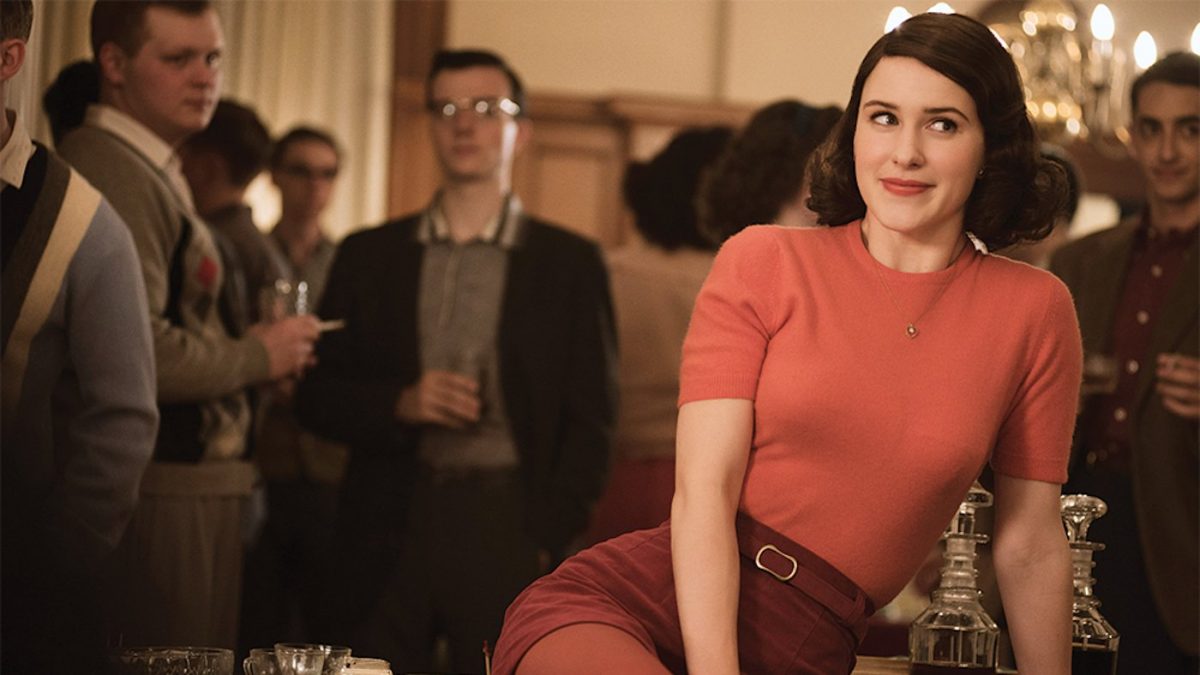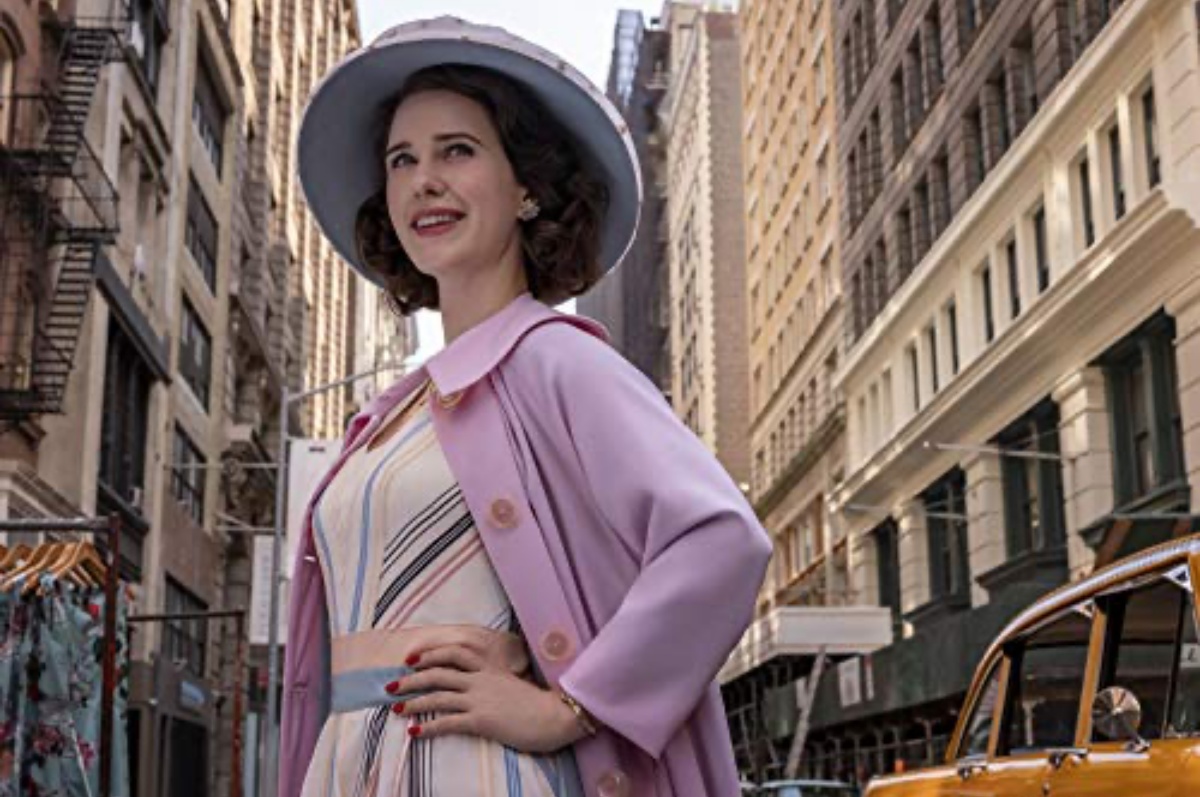Midge Maisel Is the Worst and Season Four of ‘The Marvelous Mrs. Maisel’ Solidifies It

Miriam “Midge” Maisel is a menace. Season four of The Marvelous Mrs. Maisel has wrapped up, and while it delivered one of the biggest moments of wish-fulfillment for fans, it also solidified that Midge is a character who is incapable of growing up unless reality is directly in her face—and even then, we’ll have to see.
Spoilers for Mrs. Maisel Season Four
When the season opened with Midge monologuing about wanting revenge, deciding that she wasn’t going to do opening acts and that she was going to beat to her own drum, I was hoping that it meant something was going to change for Midge.
After these few years following the character, Midge has rarely been challenged or gone through any significant, lasting financial hardships, and she’s so beloved that it makes Rory Gilmore look like Boo Radley. Despite the immense charisma, star power, and beauty of Rachel Brosnahan, Midge has done very little to be a great character.
Frankly, it’s time for us to have a conversation about the fact that series creator Amy Sherman-Palladino does not know how to challenge white femininity in a really engaging way. There have been times when I wondered if my criticisms of Midge were harsher because she’s a woman, and we do not allow women to be antiheroes or to just be unlikable—even unconsciously.
We see this often with characters like Skyler on Breaking Bad, Carmela on The Sopranos, and any other wife or girlfriend character who is just as complicated as her male counterpart. Midge Is a different story because she is the protagonist of the story, and the story is completely on her side in a way that is almost brazenly empowering (if you squint).
But even Lorelai Gilmore had to get called out once in a while, even Rory Gilmore had to be taken to town once in a while, and with Midge, it feels like no one is really willing to tell her “Girl, you are full of shit.”

Full of shit in a way that is not only horrible to watch but, considering the social and racial climate of the times in which the show takes place, makes her seem so irresponsible and ignorant, for a character we are supposed to believe is intelligent enough to be a trailblazing comedian in the same period as a Lenny Bruce.
The Shy Baldwin situation has been a huge albatross for me as I’ve watched the show, mostly because I kept waiting for someone to really acknowledge the problem of what Midge did. Instead, we get these insipid monologues about revenge and all of this whining about how wronged she feels, and when we finally get an episode where Shy and Midge get to speak, Midge acts with such an air of entitlement.
Watching their conversation in the bathroom scene, I really had to sit back and ask myself: Is this show really saying that, in a situation where a white woman semi-outed a Black gay man in the late ’50s at a comedy show, that the white woman who was fired by her Black boss is a victim? It sure as heck is!
And not only is the show saying that, but they want us to believe that even though Midge was wrong, Shy was worse for not allowing her to talk to him on the plane, even though he had every right to kick her out. Watching Midge and Susie walk around Shy’s mostly Black-attended wedding, throwing tiny tantrums, flinging things on the ground, and just being aggressive white people at a Black person’s wedding, is just so gross.
Yes, Shy is a man and, therefore, has some element of privilege, but let’s not pretend as if Midge is not the one throwing around her whiteness and her privilege to be able to just not give a damn that she could potentially be making Black people feel uncomfortable. Her ego is so fragile that because she was so worried about bombing at the Apollo, she didn’t care about the potential risk to her friend.
Midge deciding to not do any more opening acts because she wants to “be herself” was not only one of the most privileged things I’ve ever seen, but I also felt badly for Susie, who, as a manager, is being denied the opportunity to grow because her client is incompetent. Midge is so comfortable judging that she forgets that this is a job, not a hobby, as she keeps telling her mother.
It was great that Lenny Bruce told her off, but why did we have to have that man do it? She had to be told the reality of her career by a man because she is incapable of working with any other female comic, has a female manager who she mistreats, and has such a large ego that she cannot see beyond the brim of her hats to the potential harm she is doing to people.
It is honestly due to the amazing work of Rachel Brosnahan that the character is even watchable. If she wasn’t gorgeous and likable, there would be no point to Mrs. Maisel, and it sucks because I have enjoyed, while often criticizing, Amy Sherman-Palladino’s work. There is no doubt that she is deeply talented. However, all of this just tells me that she has not grown since Gilmore Girls.
If you look at Gilmore Girls, the exact same problems that exist in the original series were amplified in A Year in the Life, ten years later. Now, while ASP finally has the recognition to make a big project like Maisel, she still hasn’t learned from the things that didn’t work with her previous series, and that’s disappointing.
We do need great female antiheroes, but the writers need to know that’s what they are.
(featured image: Amazon)
Have a tip we should know? [email protected]
